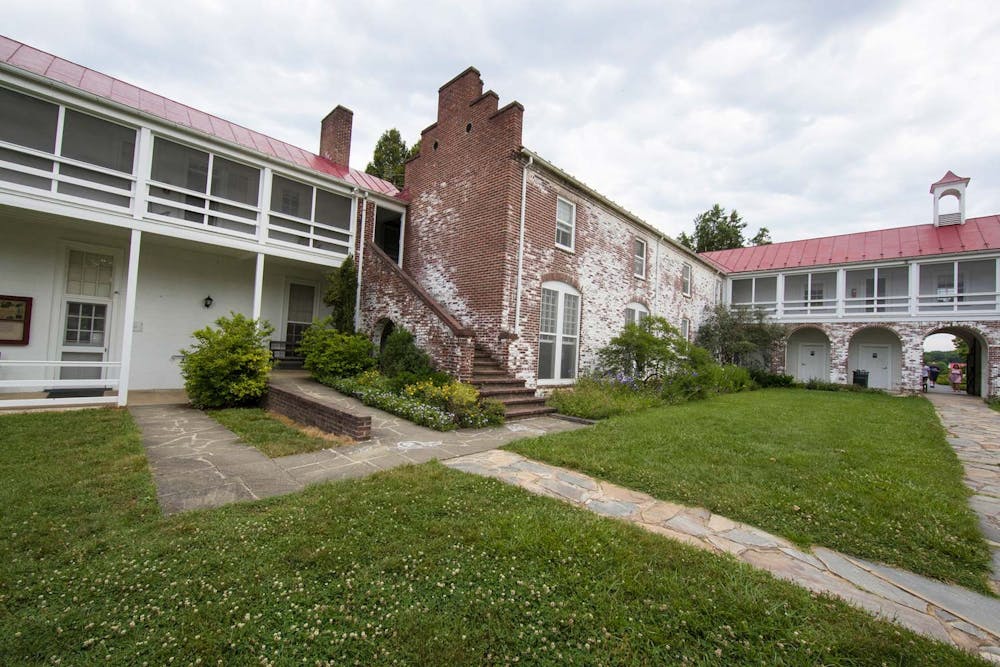Since the initial announcement March 18 to limit all ongoing research amid the COVID-19 pandemic, the University has been slowly ramping up research in an effort to return to previous conditions. For the department of environmental sciences, the restrictions have hit graduate and undergraduate students hard, as they are unable to travel to or enter field stations to conduct research.
Environmental science research often involves traveling to field stations to collect data. However, the University prohibited any international and non-essential domestic travel effective April 10, preventing many researchers, particularly graduate students, from conducting studies. Essential travel was defined as “activities that are absolutely necessary, cannot be rescheduled and must be done in person.”
Howard Epstein, department chair and professor of environmental sciences, explained how many planned expeditions for field work were deemed non-essential travel.
“We had a lot of field work planned for northern Alaska this summer, and we basically had to cancel all of that,” Epstein said. “We have a project going on in the tallgrass prairie of South Dakota with several U.Va. [undergraduates] on that project. Part of that project is field work, part of that project is also education for some of the local high school students there on a Native American reservation. We went all virtual for that.”
The effects of the pandemic could not be clearer than at Blandy Experimental Farm, an environmental research station owned by the University. Located in Boyce, Va. and covering 712 acres, Blandy focuses on ecological research and education.
From March 31 until June 6, Blandy was closed to the public and had a limited staff. Even after reopening, researchers at Blandy had to adhere to the Phase One research guidelines of the University, which allows researchers and “select graduate students” to return to research facilities.
This summer, Blandy could not welcome many researchers to its premises, including University faculty and graduate students, as well as professors and graduate students from other universities. It also could not host the Blandy Research Experiences for Undergraduates program, an 11-week summer program that exposes undergraduate students to research in ecology and the environmental sciences.
David Carr, research associate professor of environmental sciences, explained that while his field work with graduate student Kelsey Schoenemann has not been affected beyond the addition of PPE and social distancing requirements, the research of many others was halted or done remotely.
“The biggest effect has been that community that we’re used to having here at Blandy was unable to assemble this year,” Carr said.
The greatest challenge for graduate and undergraduate students traveling for field work can often be housing. As facilities closed, many students, especially those scheduled to go to Blandy, were left with few options.
“For the undergraduates, the big problem was they’re all housed together, and it just seemed like a really bad idea,” Carr said. “Bringing undergraduates from all over the country and [housing] them under one roof at Blandy this summer. It just seemed like a recipe for disaster.”
With their summer research plans upended, a number of graduate students were unable to collect the data necessary to meet research and degree timelines. As Tara Illgner, a master’s student in atmospheric chemistry, explained, many students will have to wait to finish their research.
“There’s been a reduction in that valuable hands-on experience for the new generation of entering scientists who are supposed to be working with ... and learning from other scientists in different stages of their careers,” Illgner said. “We have a whole new generation of scientists who are missing at least a year of that, probably more than that.”
As the University plans to reopen for the fall semester, research concerns have shifted to in-person instruction, particularly for laboratories. With a limited number of people allowed in a laboratory at any given time, the department of environmental sciences looks to alternatives, like outdoor field trips near Clark Hall or virtual bench labs.
“For as long as we need to lecture remotely, we can keep getting better at that,” Carr said. “It’s hard for me to imagine what we could substitute for the in-person experience for a lot of these laboratory courses.”
Despite delays in research, many researchers, like Epstein and his graduate students, were still able to work on data analysis and written proposals. Agencies that typically fund environmental science research, like NASA, also continued to ask for and review research proposals.
Although the pandemic stalled a great deal of current environmental sciences research, it has also inspired new projects that may provide more insight into our environment. Illgner recently proposed a research idea to NASA that would compare the large decline in springtime combustion with data from other springtimes. Using different satellites, Illgner suggested that scientists could study the atmospheres over large cities.
“It would be cool to go back and see how much did nitrogen oxide decline during that reduction/combustion [period] and what does that teach us about how much more we can improve our regulation and how much of an impact it had on the amount of ozone that we were producing down in our breathing space,” Illgner said.
Although the University continues to ramp up research on grounds, graduate and undergraduate researchers have lost over four months’ worth of environmental science research and will continue to be limited by social distancing rules during the fall semester. However, recent ideas and projects, like Illgner’s proposal, provide new avenues for research and maintain that it is still possible to learn about the environment amidst a global pandemic.







